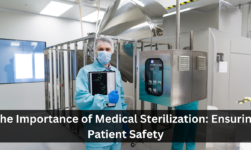
Pregnant women are particularly susceptible to several medical problems and concerns that might endanger their lives and the lives of their unborn children. Every pregnancy is like an intense stress test for the heart and circulatory systems of pregnant women. During and after pregnancy, it can put the mother’s health at risk. Pregnancy heart issues can affect even the healthiest of mothers.
Women’s blood volume increases from 30 to 50 percent during pregnancy to feed the growing fetus. But as blood volume increases, so does the amount of labor the heart has to put into pumping. Increased blood volume means that a pregnant woman’s heart must work twice as hard, requiring more energy.
When a woman goes into labor, her heart rate and blood pressure might alter dramatically, exerting extra strain on the heart muscle. After the baby is born, the placenta’s extra volume returns to circulation and is reabsorbed from the body, putting pressure on the heart muscle.
Specifically, while pregnancy, during childbirth, or afterward, women with heart disease may experience a worsening of their illness and have more severe symptoms. Any time during pregnancy, as much as a year after a seemingly normal pregnancy, heart problems might emerge.
Risks of heart diseases on pregnancy
If you have a cardiac issue, you are at risk for a variety of complications. As an example, consider the following:
- Heart rhythm disorder. During pregnancy, minor irregularities in the heart’s rhythm are prevalent. Usually, there is nothing to worry about. For example, if you’re pregnant and have an arrhythmia, you’ll likely be prescribed medication.
- Heart valve disorders. There are issues with the heart’s valves. Scarring, valve abnormalities, and prosthetic heart valves can increase the risks of pregnancy. Some women may have problems tolerating the increased blood flow during pregnancy if their valves aren’t functioning appropriately. An increase in the risk of endocarditis (infection of the heart’s lining) and heart valves is also associated with artificial or defective valves. Because of the necessity to adapt blood thinner use and the potential for life-threatening clotting in the heart valves (thrombosis), mechanical artificial heart valves pose substantial hazards during pregnancy. Don’t use blood thinners when you’re pregnant because it could impair your baby’s health in the future.
- Congenital heart failure. Heart failure might worsen as blood volume increases.
- Congenital heart defect. In case you were born with a heart defect, your child is at a higher risk of acquiring a heart defect as well. As a pregnant woman, you may also be at risk for heart problems and premature births, as well as other health issues.
Heart complications during pregnancy
A woman’s heart-relatedcomplications during pregnancyissue will vary based on her specific condition, and general health includes:
- Heart arrhythmias, or irregular heartbeats,
- Problems with heart valves caused by increased blood flow
- Infection of the heart’s lining and valves, known as endocarditis
- Diabetic cardiomyopathy
- Your baby can get congenital heart defects.
- There is a higher than usual chance of miscarriage, early birth, and poor fetal growth.
Pregnancy planning and heart disease
A cardiologist (heart expert) and an obstetrician with experience in high-risk pregnancies should evaluate you before you start planning a pregnancy.
- A high blood pressure level (hypertension) or high cholesterol level (hyperlipidemia).
- Any form of heart or blood vessel illness, including aorta disease, cardiomyopathy, heart failure, arrhythmia, heart murmur, Marfan syndrome, or rheumatic fever, must be diagnosed before application.
- Heart attack or stroke in the past (transient ischemic attack or stroke).
- NYHA class III or IV is a poor functional state (shortness of breath with minimal exertion). Clinically, patients are classified as class I-II-III-IV by the New York Heart Association (NYHA) (If your skin, lips, and fingernail beds are blue, your body is not getting enough oxygen-rich blood). Your healthcare practitioner can provide you with more information on this topic.
- Arrhythmia/dysrhythmia is the medical term for irregular heart rhythm.
- The mitral or aortic valve or the aortic outflow tract is strongly constricted or blocked (diagnosed using echocardiography).
- Lower than 40% ejection fraction. A heartbeat’s ejection fraction measures the amount of blood pushed from the left ventricle. Ejection fraction is a measure of a person’s heart pumping efficiency (EF). The magnitude of a regular ejection fraction ranges from 50 to 70%.
The cardiologist will evaluate your medical history, perform a physical examination, and prescribe diagnostic tests to examine your heart function and assess the severity of your condition. To determine whether or not it is safe for you to be pregnant, your cardiologist will analyze your test findings and discuss possible difficulties throughout your pregnancy, including short- and long-term risks to you as well as the baby. Before becoming pregnant, your cardiologist can advise you on any Medicine or other treatments you may require.
All prescriptions (including cardiac meds and over-the-counter Medicine) should be discussed with your doctor so that the dosages can be adjusted if necessary. To ensure that you’re taking the safest medications throughout pregnancy, you may need to switch prescriptions.
Heart disease sufferers can safely become pregnant and give birth to healthy children by following up with their doctors regularly in the months leading up to conception and during pregnancy.
Medications
Pregnancy medications can have an impact on your unborn child. However, in many cases, the positive effects exceed the risks. Health care providers will provide the safest Medicine at a suitable dose if needed to control your cardiac problem.
Take the Medicine exactly as directed by a doctor or other healthcare provider. Take the medication as prescribed, and do not discontinue or modify the dosage on your own. You may order heart medication online as per prescription.
Pregnancy preparation
Pre-conception appointments with your cardiologists, as well as with the health care physician who will be caring for your pregnancy, should be made well in advance. An obstetrician specializing in high-risk pregnancy must be there to join the consultation(maternal-fetal medicine specialist). To determine if any therapy modifications are necessary, your medical team will assess how effectively you’re managing your cardiac problem. During pregnancy, certain heart-related Medicine are not allowed to consume. Your doctor may change the quantity or make a replacement and clarify the potential risks.
Your doctor may recommend having your baby at a hospital that specializes in high-risk pregnancies. Good health, adequate circulation, and closeness to a specialized professional are essential for inducing labor.
During the delivery procedure, monitors will use to keep a check on your progress. You may need to have your heart rate and rhythm checked during labor and delivery.
Constantly monitoring of both the fetal heartbeat (and contractions) will be needed. While lying on your back, you’ll most likely find yourself instructed to lie on your side and bring a leg into proximity to your chest.
Depending on the severity of the problem, an epidural or lumbar spine blocking technique could typically alleviate your suffering. By employing forceps or vacuum extractors during vaginal delivery, a health care provider can help you push less and deliver your baby. After delivery, you may receive antibiotics if you’re at risk for endocarditis. C-sections are not usual for women with heart conditions. You’ll have your heart function continuously checked if you need a C-section due to an obstetrical issue. If you have some form of severe heart disease during pregnancy, your doctor may propose setting a controlled labor induction date.
Setting Together a Great Team
Assembling a team of experts trained in handling these high-risk pregnancies is critical to your safety and that of your unborn child. Hence, if you have a complex heart defect, the American Heart Association suggests having your baby in a hospital that has a broad spectrum of expertise.
- Assemble a team that includes:
- Maternal-fetal medicine specialist – An OB/GYN with specific training and experience in managing high-risk pregnancies.
- An adult congenital heart disease specialist who treats acquired heart disease and adult genetic heart illness.
- Obstetrician
- Primary care doctor
- One who specializes in treating mothers suffering from maternal heart disease
- Geneticist and Genetic Counselor
- A cardiac surgeon
- Pediatric surgeons and fetal intervention specialists, if necessary
During and After Pregnancy Treatment
From conception to birth, your medical team should work collaboratively to:
- Analyze your pregnancy and birth risks.
- Your doctor will determine if you need heart surgery or interventional therapies while you’re pregnant or after.
- To determine the need for an additional medication during pregnancy or avoid old medicine for safety concerns.
- Examine your child’s chances of being born with an inherited heart problem.
- Analyze whether your baby’s heart requires fetal echocardiography (FEE).
- Assemble an effective treatment plan based on your specific needs.
- If you have any lasting complications from pregnancy, your heart will be monitored regularly in the months following your delivery.





